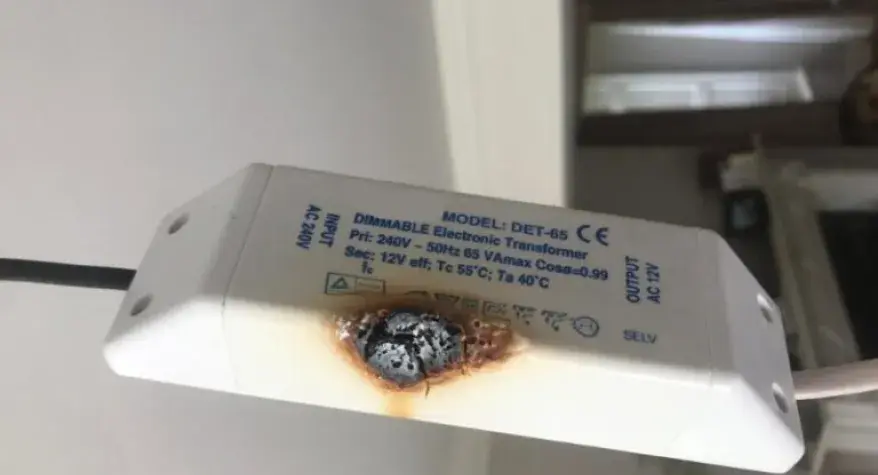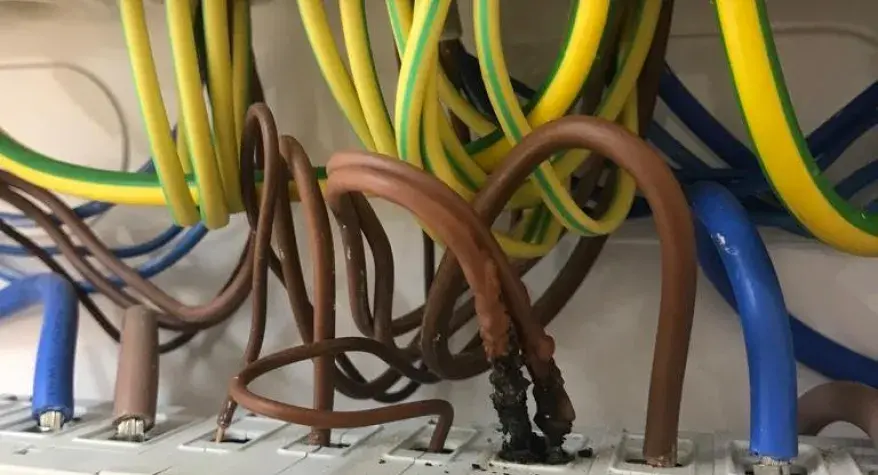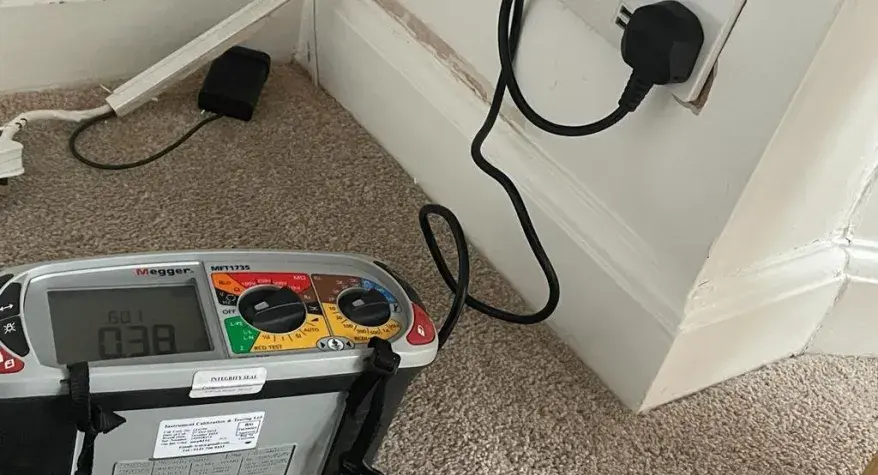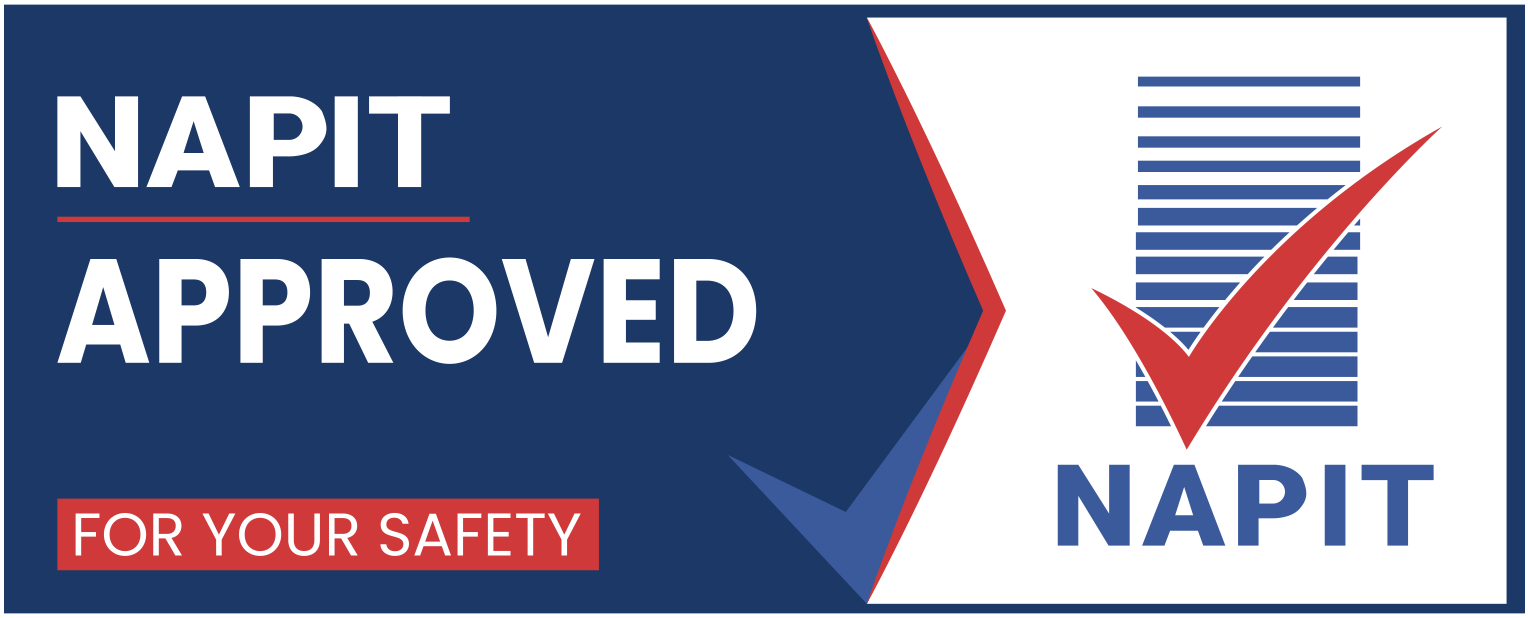Electrical Installation Certificate: What you need to know
EIC, EICR, frameworks, regulations and statutory requirements! Who knew that getting significant electrical work done on your home could become so complicated?!
Well, we are here to help.
In this article we explain all the acronyms, explain the regulations you need to be aware of, and generally unpack everything you need to know about Electrical Installation Certificates. But firstly, why do you need to worry about Electrical Installation Certificates?
Why bother with EICs?
1. To stay safe
Firstly, electricity is dangerous! In the UK, every year over half of accidental domestic fires are caused by electricity. Most of these are caused by electrical products, either through misuse or faults. However, it is possible for your electrical system to spark and cause a fire. It is essential that you keep yourself and your property safe and an EIC helps you do that.
If you are thinking about having any ‘notifiable’ electrical work carried out on your property, such as re-wiring, installation of a new fuse box or a circuit alteration, it is always advisable that you use a registered electrician to carry out the work.
If you use an unregistered electrician, builder, handyman or even a mate who ‘knows what he is doing’, then you are very likely to run into problems.

It is important that you receive a copy of the Electrical Installation Certificate from the registered electrician who carried out the work.
2. It’s the law
An EIC certificate is compliant with Building Regulations and is required by law for all notifiable work (more on what counts as “notifiable work” below)
3. You need it to sell your home
An EIC is particularly important if you ever wish to sell your property; you will be asked for it when selling your property as evidence that the additional work you’ve had done is safe. If you don’t get one, this can cause issues and you will be required to provide an EICR (more on that below).
What is the purpose of an Electrical Installation Certificate (EIC)?
A registered electrician provides an EIC as evidence that their work has been completed according to all statutory requirements and building regulations.
An Electrical Installation Certificate (EIC) is issued following the completion of electrical work by a registered electrician. This certificate is compliant with Building Regulations and is required by law for all notifiable work.
A builder or handyman may seem competent and may do a good job, but they can’t issue this certificate if they are not registered as an electrician and do not have up-to-date qualifications.
It is not legal for another electrician to sign off on someone else’s installation work if they have not designed the installation and installed it themselves, or supervised the work undertaken from the beginning of the process.
It is possible to inspect the work, but this will result in an Electrical Inspection Condition Report which is not the same as the installation certificate.
When is an Electrical Installation Certificate required?
Because of the safety risks that are associated with electrical work, an EIC is required when any notifiable electrical work is carried out. What classes as “notifiable” is different depending on where you live. Here’s a quick run-down of the regulations for the different regions in the UK:
Under Part P regulations in England, notifiable work is counted as:
- Installation of a new consumer unit (fuse box)
- Installation of a new circuit
- Circuit alteration or addition in a bathroom or shower room (specifically in the area around the bath or shower), or in a room with a swimming pool or sauna
- A full rewire
- A partial rewire
- A full new electrical installation.
In Wales, the same areas are notifiable as well as some additional works, including:
- Solar photovoltaic power supply
- Electric ceiling or floor heating
- An electrical generator
- Power/control wiring for a central heating system
- A supply to a detached garage, shed or other outbuilding
- A supply to an electric gate or pond pump
- Garden lighting
- An exterior socket outlet
- Extension of existing circuit in a kitchen, bathroom or shower room, or room with a swimming pool or sauna
- Wiring, IT equipment and plug/socket connections in a bathroom or shower room, or room with a swimming pool or sauna.
In Scotland, notifiable work has to comply with the building standards system. Any electrical work carried out under a building warrant has to be approved by a registered installer or checked by the local authority.
There is no equivalent framework in Northern Ireland, but it is still advisable that you use a competent registered electrician.
The EIC provides proof that the electrical installation works carried out on the property have been done to satisfy building regulations. You only need an EIC to be issued once when the electrical work is completed, but you will need this certificate if you come to sell your house. If you don’t have one then you may need to carry out an Electrical Installation Condition Report, or pay for appropriate indemnity insurance to cover any costs for a registered electrician to re-do the work, or to put it back to how it was before.
What is an Electrical Installation Condition Report?
Although they sound similar, an Electrical Installation Condition Report (EICR) is different to an EIC. An EICR is the safety certificate and report that a registered electrician supplies following an inspection of your property, whereas an EICR is a comprehensive check of the fixed wiring of your property’s electrical systems and installations to check whether they are safe and compliant with the regulations.

When issuing an EIRC, the electrician will assess and identify any conditions, deterioration or defects that can cause potential safety issues. This is about checking that the underlying electrical system is safe - including the fuse board, wiring, earth bonding and other bits that you can’t see.
What’s included in an EICR?
To start with, your electrician will conduct a visual check of your property, followed by carrying out a series of checks on your electrical systems. For example:
- That your fuse board is safe and compliant with current regulations and whether it has the necessary circuit breakers and RCD protection.
- That everything is correctly earthed.
- They will also check a sample of your sockets, lights, switches and accessories to see that the wiring is installed correctly - this is usually around 10% of them.
There is a rating system for any problems. If your electrician finds any problems that are immediately dangerous, they will need to fix those straight away, or at least make them safe.
Any problems that are potentially dangerous will also be noted and your electrician should provide a quote to fix them at the end of the process.
He or she will also note any recommendations in the report that are not deemed unsafe, but may be advisable to implement.
Who can do an Electrical Installation Condition Report?
You should always make sure that your electrician is properly qualified to carry out an EICR. You can check on the Electrical Safety Register whether the electrician is Napit accredited, or approved by another electrical regulatory body at a similar or higher level. Napit, NICEIC, STROMA and the ECA are regulatory bodies for the UK electrical industry that carry out competency checks on electricians. There are different levels of qualification, so check if your Electrician has the relevant experience to carry out an EICR.
How long do EICRs take to complete?
As a rough guide, a small one-bedroom property could take up to three hours, whereas a three-bed would take around five hours and so on. Beware of low-cost options where a company says they will undertake a thorough check in a short amount of time - you want to be sure they are doing the job properly.
How often should I get an EICR?
The campaigning charity Electrical Safety First recommends getting an EICR completed every 10 years in a private property, although landlords are supposed to get one every five years, or whenever they change tenants, whichever is sooner. If you fail to check and maintain your electrical systems, insurance companies can use this as a reason to refuse claims if they are as a result of electrical faults.
You should also ask if there will be any limitations to the report; if you want them to check the whole property then make sure that they will do so. This also means you need to give them access to the whole property - perhaps moving furniture and making sure there are no locked doors preventing access to areas, such as offices or garages.
Electrical Installation Regulations
If you have any electrical installation work done at your property then you should make sure that you use a registered engineer who provides you with an Electrical Installation Certificate. It is also advisable to have a regular Electrical Installation Condition Report check to ensure that your electrics are safe. You could think of this as like taking your car to the garage for an MOT - it is worth knowing about any potential faults before anything serious happens.
If you need an EICR carried out or have questions about Electrical Certificates contact A Bathe Electrics.






